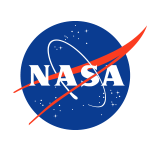Human Research Program
Individualized Real-Time Neurocognitive Assessment Toolkit for Space Flight Fatigue
Project Description
SUPPLEMENTAL REPORTING FOR FINAL REPORT (JULY 2017): KEY FINDINGS - In 2015, we completed data acquisition in Human Exploration Research Analog (HERA) 14-day missions (16 crew in 1-week missions, and 16 crew in 2-week missions total). A NASA report was submitted in May 2016. We also completed data acquisition in 6 Hawaii Space Exploration Analog and Simulation (HI-SEAS) crew members in a 12-month mission, bringing our total N to 17. Finally, we completed collecting Cognition data at 3 Antarctic research stations along with N=13 control subjects at DLR (German Space Agency) to compare changes over mission-duration. - Also in 2016, we completed in-flight data collection on N=7 astronauts (2 of them participating in the 12-month mission, Aim 5). Post-flight data collection in all crewmembers was completed in September 2016. - Additionally, a validation study compared Cognition on both Windows and iPad with WinSCAT in N=96 high-performing subjects was completed. A manuscript was submitted to Aerospace Medicine and Human Performance and is in revision. - We finalized another National Space Biomedical Research Institute (NSBRI)-funded study to increase administration flexibility of Cognition in May 2017. - We recently completed data acquisition in a NASA funded study on the effects of elevated CO2 on cognitive performance. - Data collection was completed for an NSBRI head down-tilt and elevated CO2 study at DLR's envihab facility (SPACE-COT). We are currently preparing the manuscript for publication. - Finally, we supported NASA and NSBRI in their efforts transitioning Cognition into operations. We held two data results review meetings at JSC for Ops personnel and researchers. We also held two Cognition training sessions at JSC (Johnson Space Center) at the end of May. IMPACT OF KEY FINDINGS ON HYPOTHESES, TECHNICAL REQUIREMENTS, OBJECTIVES, AND SPECIFIC AIMS OF THE ORIGINAL PROPOSAL The findings support the feasibility of Cognition administration in astronauts and astronaut surrogate populations, on both the Windows and iPad platform, and in space analog environments. Participant feedback provided during debriefs (N>60) provided helpful insights for current and future improvements of the battery. Cognition is currently deployed in several key studies funded by NSBRI, NASA, and ESA (European Space Agency), and it was selected as a core component in the project to develop a standardized behavioral measures toolkit (BCM) for spaceflight operations, demonstrating the need for and the success of the Cognition battery. ORIGINAL PROJECT AIMS (AUGUST 2016 REPORT) This project addresses the National Space Biomedical Research Institute (NSBRI) Human Factors and Performance Team goal to develop tools to assess crew performance in real-time and evaluate countermeasures to mitigate the effects of fatigue, circadian misalignment, and work-overload. It has secondary relevance to the Neurobehavioral and Psychosocial Factors and Sensorimotor Adaptation Teams. It is responsive to the critical need to identify how a range of cognitive functions of astronauts can be affected in space flight by fatigue alone, its interaction with other risk factors and conditions (e.g., elevated CO2, intracranial pressure, space fog), and countermeasures. The project will deliver a comprehensive, software-based, neurocognitive toolkit (Cognition). By building on state-of-the-art neuropsychological test development, the toolkit will permit evaluation of a full range of cognitive functions using brief (1-5 min), validated procedures. The tests include -- but go beyond -- what is currently measured by WinSCAT and the Reaction Self Test on International Space Station (ISS). Importantly, the toolkit will permit rapid assessment of performance in cognitive, social-emotional, and sensorimotor domains. Performance assessment algorithms will be individualized to each astronaut's norm, and adjusted for learning using a data modeling approach, in order to optimize individual performance relative to the effects of fatigue and related cognitive impacts. The toolkit will facilitate identification of underlying neural mechanisms affected when cognitive deficits are identified, by using tests selected on the basis of published fMRI studies that identify the specific brain regions subserved by each test. The project begins at TRL (Technology Readiness Level) 5/CRL (Countermeasure Readiness Level) 6 and ends at TRL 7/CRL 8. Toolkit development will progress from laboratory, to data acquisition in astronauts at Johnson Space Center (JSC), to ISS. The resulting comprehensive, neuroscience-validated, cognitive test battery for real-time evaluation of astronauts in space will be an essential detection technology for effective fatigue countermeasure management of astronaut performance in space. The link to neuroscience will yield directions for mechanisms of cause and potential interventions. The project has the following 5 specific aims: 1: Development of short-duration adaptive versions of neuropsychological tests for space flight; 2: Establish learning curves for neuropsychological tests and validate sensitivity to sleep deprivation; 3: Cognition software development and optimization for space flight; 4: JSC field testing, astronaut learning curves, and astronaut norms for performance feedback algorithm development; 5: International Space Station (ISS) feasibility study. KEY FINDINGS -The first full version of Cognition was launched in November 2012 (Aims 1 and 3) and deployed in the sleep restriction studies at UPenn (Aim 2). These studies were completed in 2015, and a total of 108 laboratory participants completed the test battery (all 10 tests) 12-18 times (N=36 total sleep deprivation, N=101 partial sleep restriction, N=7 control subjects). Final results were presented at a review meeting in 7/2016 at NASA JSC. - Collection of normative data from mission controllers (N=11) and astronauts (N=7) at JSC was completed (Aim 4). - Data acquisition was also found to be feasible in space analog environments, particularly at the Human Exploration Research Analog (HERA) facility, the Hawaii Space Exploration Analog and Simulation (HI-SEAS) facility, and several Antarctic research stations (Concordia, Halley-VI, and Neumayer-III). - In the past year, we completed data acquisition in HERA 14-day missions (16 crew in 1-week missions, and 16 crew in 2-week missions total). A NASA report was submitted in May 2016.We also completed data acquisition in 6 HI-SEAS crew members in an 8-month mission, and began data collection in N=6 crew members participating in a 12-month mission. Finally, we continued collecting Cognition data at 3 Antarctic research stations along with N=13 control subjects at DLR (German Space Agency) to compare changes over mission-duration. - Earlier this year, we completed in-flight data collection on N=7 astronauts (2 of them participating in the 12-month mission, Aim 5). Post-flight data collection is ongoing in two 12-month mission astronauts/cosmonauts and two 6-month mission astronauts. - Additionally, a validation study compared Cognition on both Windows and iPad with WinSCAT in N=96 high-performing subjects was completed. - We started another NSBRI-funded study to increase administration flexibility of Cognition. - We recently completed data acquisition in a NASA funded study on the effects of elevated CO2 on cognitive performance. - Data collection was completed for an NSBRI head down-tilt and elevated CO2 study at DLR's envihab facility (SPACE-COT). We are currently preparing the manuscript for publication. - Finally, we supported NASA and NSBRI in formulating a customer supplier agreement for transitioning Cognition into operations. IMPACT OF KEY FINDINGS ON HYPOTHESES, TECH. REQUIREMENTS, OBJECTIVES AND SPECIFIC AIMS OF THE ORIGINAL PROPOSAL: Preliminary findings support the feasibility of Cognition administration in astronauts and astronaut surrogate populations, on both the Windows and iPad platform, and in space analog environments. Participant feedback provided during debriefs (N>60) provided helpful insights for current and future improvements of the battery. Cognition is currently deployed in several key studies funded by NSBRI, NASA, and the European Space Agency (ESA), and it was selected as a core component in the project to develop a standardized behavioral measures toolkit (SBMT) for spaceflight operations, demonstrating the need for and the success of the Cognition battery. PROPOSED RESEARCH PLAN FOR THE COMING YEAR: Post-flight data acquisition for the 12-month mission will conclude in the final year of the project.
More »
Anticipated Benefits
The project will have substantial impact on progress in three major areas relevant to the needs of NASA and state of the knowledge. 1. Cognition markedly enhance astronauts' and flight physicians' ability to quickly (real-time) and objectively evaluate the neurocognitive status of astronauts relative to activities that can induce fatigue in space (i.e., acute sleep loss from prolonged duty, chronic sleep estriction, inadequate recovery sleep, slam shifts and circadian misalignment, high physical and/or cognitive workloads, EVAs, etc.); relative to fatigue countermeasures, e.g., different sleep-wake schedules, sleep-promoting and wake-promoting medications, light exposure for circadian associated with occult neurobehavioral risks in space, e.g., space fog, space asthenia/neurasthenia. 2. Cognition permits identification of important fatigue-related individual differences (i.e., differential vulnerability) in the nature and severity of cognitive performance deficits (e.g., from deficits in spatial orientation, to working memory, to abstract reasoning, to risk decision- making) during space flight, in a comprehensive and precise manner to permit optimal targeting of fatigue countermeasures to specific individuals, and to help predict the performance capability of individual astronauts relative to specific space flight tasks (i.e., align cognitive performance readiness relative to the need to conduct specific space flight tasks). 3. Cognition helps in the medical identification and treatment management course of neurologically-based performance deficits in space flight due to environmental stressors (e.g., exposure to high CO2, hypoxia, radiation); medically urgent events (e.g., head injury, papilledema, and/or the possibility of elevated intracranial pressure [ICP]); and neurobehavioral conditions brought on by prolonged stays in space (e.g., time in confinement, neural remodeling from sensorimotor alterations, affective disorders). Although the Cognition test battery is primarily developed for space flight, it will be a valuable tool in many Earth-based patient and non-patient population settings, where identification of suboptimal cognitive performance is important for safe operations (e.g., truck drivers, operators of heavy machinery) or for tracking therapeutic effectiveness. Cognition is optimized for repeated administration, a feature that many of the currently available test batteries are lacking.
More »
Project Library
Primary U.S. Work Locations and Key Partners
| Organizations Performing Work | Role | Type | Location |
|---|---|---|---|
| National Space Biomedical Research Institute (NSBRI) | Lead Organization | Industry | Houston, Texas |
| Pulsar Informatics Inc | Supporting Organization | Industry | Philadelphia, Pennsylvania |
| University of Pennsylvania | Supporting Organization | Academia | Philadelphia, Pennsylvania |
| University of Pennsylvania Health System | Supporting Organization | Academia | Pennsylvania |
Primary U.S. Work Locations
-
Pennsylvania

Suggest an Edit
Recommend changes and additions to this project record.

